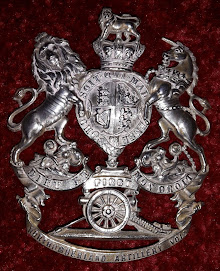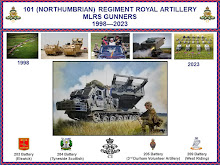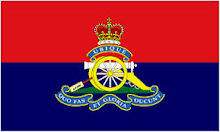The origins of the Heugh Battery lie in the fear of French invasion in the 1850's. Work on the Heugh Battery to defend the entrance to the Tees began in 1859. The Battery would consist of four large smooth bore guns while a smaller battery for another pair was built next door by the lighthouse. The 68pr guns which had an effective range out to a mile and a half were first manned by the Militia Artillery and later by a detachment of Volunteers raised in the town.
 |
| Heugh Battery Shortly after completion in 1859 |
 |
| Muzzle Loader Heugh Battery |
In 1900 it was decided to rebuild the Battery and install two
6 inch Mk VII guns. Gun emplacements, underground magazines and a rangefinder post were built in concrete, much of which can be seen in the restored Battery.
 |
| Heugh Battery circa 1900 |
 |
6 inch Gun and Battery Command Post
Lighthouse Battery to the rear |
The Battery was initially manned by the local militia and Volunteers. On the formation of the Territorial Force in 1908, the Battery was manned by the Durham Royal Garrison Artillery.
The First World War commended on the 4th August 1914, and the Durham RGA were mobilised to man the Guns defending the Tees. On the 16th December 1914, the Germans bombarded towns on the North East Coast, including Hartlepool. The Gunners of the RGA engaged the 3 German Battle cruisers shelling the town, and became the only Coastal Defence unit to directly engage the enemy during WW1.
As the Royal Navy gained dominance in the North Sea, the role of the Battery became more of a training role for Batteries going out to the Western Front, Over 2,000 men were trained, and the Durham RGA formed 11 Siege Batteries.
Following the First World . War, defences were run down, and in 1936, the Heugh and adjacent Lighthouse Battery were combined. The units manning the defences consisted of Durham Heavy Regiment, R.A. (T.A.) HQ, 174th, 187th Btys: Hartlepool .The Heugh Battery remained a two gun site. On the outbreak of war in 1939, the Battery became the core of Hartlepools coastal defences. In 1941, the emplacements were completely rebuilt for 6 inch Mk 24 dual purpose Coast Defence Anti Aircraft guns. These guns would not fire in anger in WW2. As the threat to the coast started to subside, the Battery was mothballed in 1944, it would remain so until the re-constitution of the Territorial Army in 1947.
On the reconstitution of the TA , t he coastal defence units were 426 Coast Regiment and 427 Coast Regiment. In 1956, Coastal Artillery was disbanded and the Battery was dismantled.
 |
| Heugh Battery 1960.s - Guns removed |
The location was abandoned until 2000, when the Heugh Battery Trust was formed to preserve the Battery.
 |
| 6ich Naval Gun Emplacements |
 |
| 6 inch Naval Gun |
 |
Depression Range Finder in Battery Command Post
|
Lighthouse Battery
The Lighthouse Battery, built in 1855, was approximately 150 yards (137 m) to the south. It was originally armed with four 64-pounder guns, which were replaced in 1907 by one 6-inch gun.
 |
| Lighthouse Battery c 1910 |
 |
| Lighthouse Battery site |







































